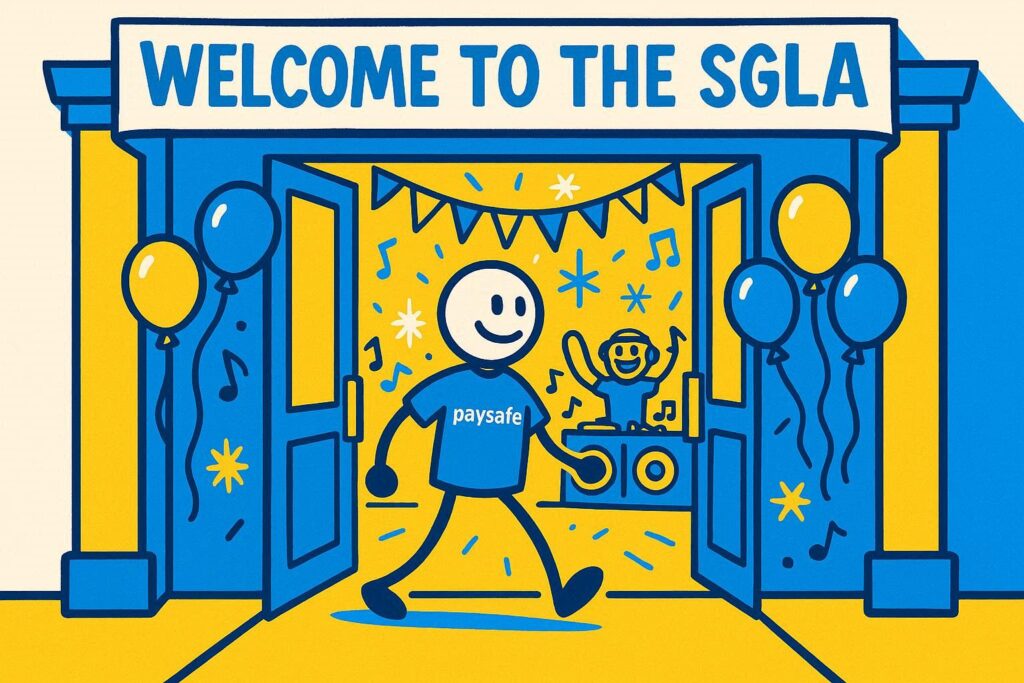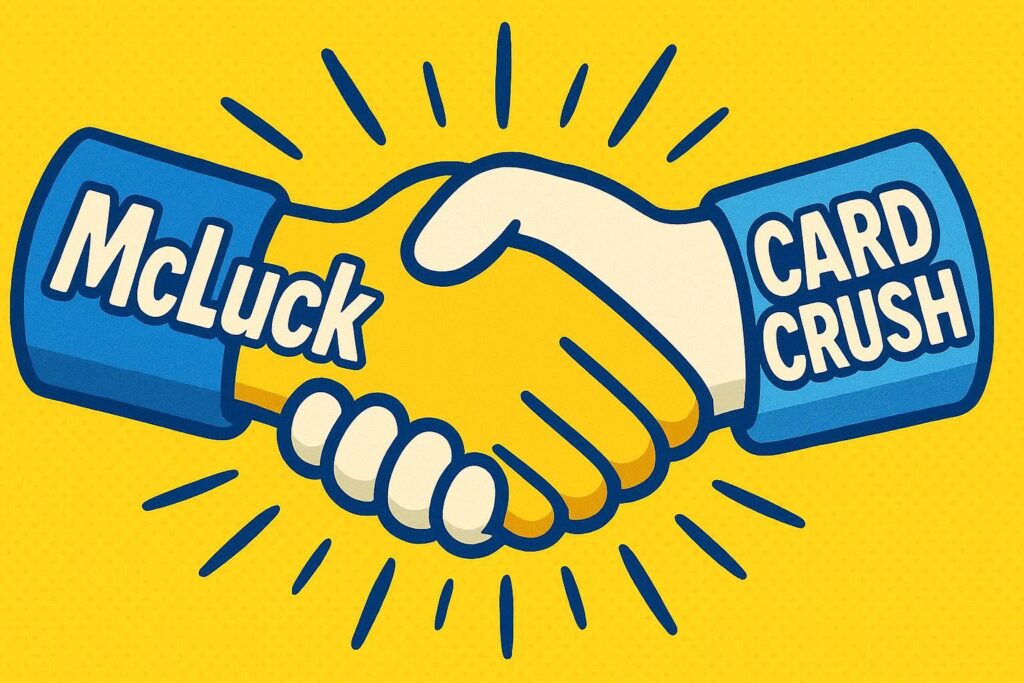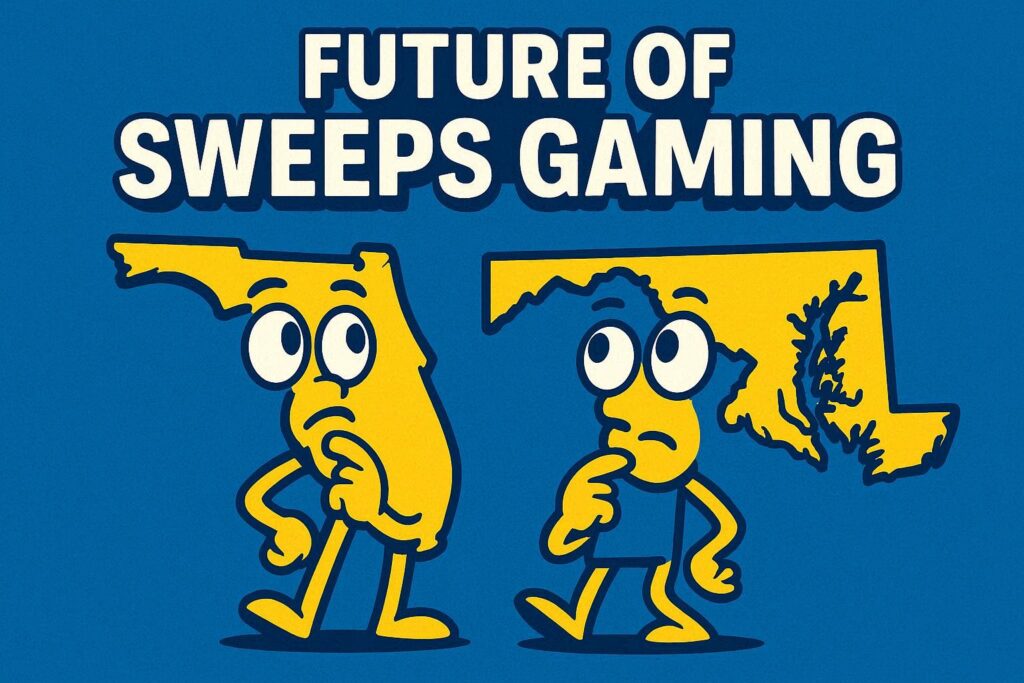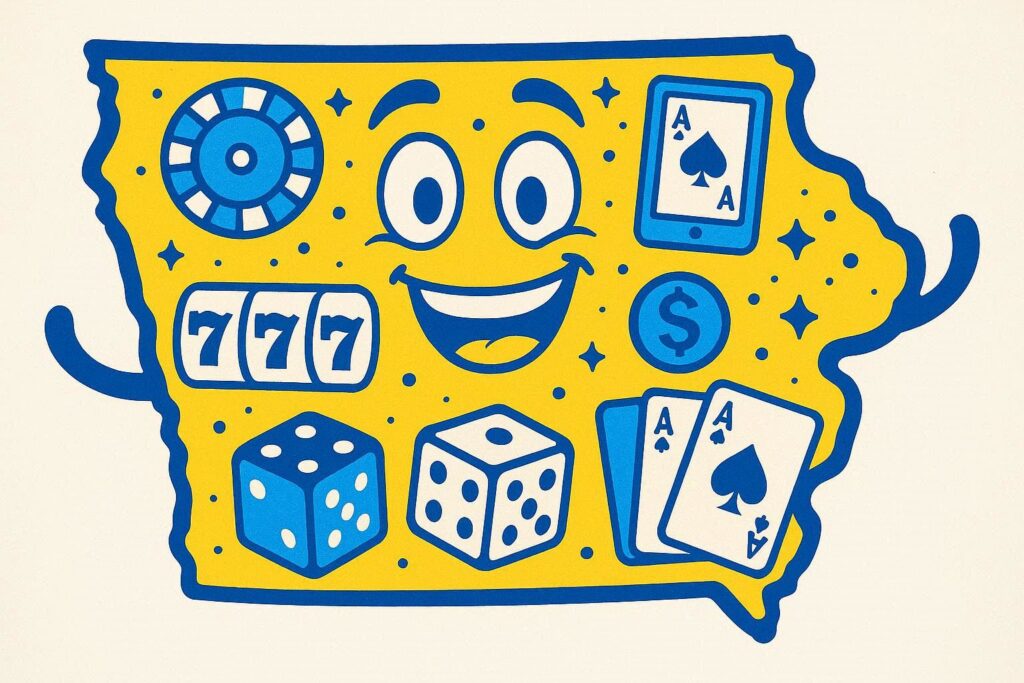Playtech is pulling its games from all sweepstakes casinos in California.
That’s according to a spokesperson for Playtech, who sent the following statement to Sweepsy after VGW told us it was removing all Playtech games from its sites — Chumba Casino, LuckyLand Slots, and Global Poker — in California.
“We continually assess our position across jurisdictions taking into account a range of factors,” the Playtech spokesperson said. “We are not supplying social gaming operators on sweepstakes in California at this time.”
So this isn’t just a VGW move. It’s all of California.
Some of Playtech’s most notable titles include Tsai Shen’s Gift Fire Blaze, Mega Fire Blaze: Big Circus, and Oink Oink Oink as examples. Playtech also provides popular live casino gaming options, such as Live Blackjack.
Some context for Playtech’s decision
On Aug. 28, the state of California filed a lawsuit in the Los Angeles County Superior Court against Sweepsteaks Ltd., which owns Stake.us, as well as the streaming service Kick and various games vendors, including:
- Big Time Gaming
- Evolution
- Hacksaw Gaming
- NetEnt
- No Limit City
- Pragmatic Play
- Red Tiger Gaming
This is the first time a state has directly sued a sweeps operator and related entities. As a result, this lawsuit carries more weight and significance than the growing number of class action lawsuits filed against members of the sweeps industry.
California is asking the court for injunctions and civil penalties — a legal tactic designed to cut around arbitration agreements and push enforcement into far tougher territory. It’s less a nudge and more a warning shot for sweepstakes casinos and the vendors behind them.
A government lawsuit represents the state asserting its power to police gambling. That raises the stakes. Potential outcomes that reach beyond refunds and settlements to include injunctions, penalties, restitution, and even criminal referrals.
Vendors are responding quickly
Soon after the lawsuit, Evolution and Pragmatic Play pulled its games from Stake.us. Days later, Pragmatic Play announced to Next.io it was ending its partnerships with United States sweepstakes casinos entirely.
On Friday, Skywind removed its games from WOW Vegas in what appears to be a nationwide exit.
And now, Playtech is officially removing itself from the sweeps market in California.
It’s important to note vendors like Playtech evaluate their market presence and partnerships by weighing a broad set of factors. To help keep themselves safe from lawsuits like the one just filed in California, these vendors closely track changes, make decisions market by market, and stay in regular dialogue with our operating partners.
All that is to say it is not a coincidence we’re seeing this recent handful of decisions from major sweeps games vendors in the days following the arrival of the California lawsuit. A precedent was set.
The overall long-term impact of that precedent remains to be seen. For larger operators like VGW, it may be minimal, thanks to their own in-house games development and the number of smaller, perhaps up-and-coming games vendors that may now seek to fill the gaps left open by exists from Pragmatic Play, Playtech, and others.
“We are not reliant on third party games suppliers and our brands still offer a vast library of world-class free-to-play games,” a VGW spokesperson told Sweepsy when they confirmed they were removing Playtech titles, “many of which are created by our amazing in-house games studios that provide our players with leading, exclusive content.”
The optics, however, don’t look good. Especially in California.
A 2-pronged approach in California
While this lawsuit makes legal waves, on the legislative front, Assembly Bill 831 — which would ban sweepstakes casinos in California — has passed all necessary Senate committee stages and now awaits a vote from the full Senate.
If it passes there, AB831 would need to get cleared by the Assembly Governmental Organization Committee (which has a member who may have a conflict of interest regarding the bill) and then pass the full Assembly again.
The original AB831 already passed the Assembly in the spring, but that was before it was gutted and amended in June to today’s version, which is entirely different from the original. So the Assembly needs to re-approve.
From there, AB831 would head to Gov. Gavin Newsom’s desk for his signature.
A date to remember is Sept. 12. That’s when California’s 2025 legislative session ends. However, the state runs on a two-year legislative cycle. That means that even if AB831 doesn’t pass through all remaining stages within the next week, it won’t fail. Rather, lawmakers can pick right back up where they left off with AB831 when the 2026 session begins in January.
Even a several-month delay in progress to January may feel like a victory for sweeps operators, though, who have lamented during legislative committee hearings that the gut-and-amend, fast-track treatment given to AB831 has made it difficult for lawmakers to have enough time to consider the perspectives of all stakeholders.
A fall break may give the sweeps industry time to regroup and strategize their lobbying efforts for when the 2026 session begins.
This week, Assemblymember Avelino Valencia, the bill’s author, added an amendment focused on clarifying that while sweepstakes casinos would be prohibited, state-run lottery games and one-off sweepstakes promotions would remain legal.
This amendment was most likely added in response to sweeps stakeholders’ claims that AB831’s language would outlaw sweepstakes promotions run by established legal businesses, such as Hilton’s Hilton Honors program or the California Lottery’s second-chance promotions.
On the other side, a fourth California tribe — the Mechoopda Indian Tribe of Chico Rancheria — came out in opposition of AB831 on Friday and also struck a partnership with Yellow Social Interactive, which owns Pulsz Casino and Pulsz Bingo.
The Mechoopda Indian Tribe of Chico Rancheria joins the Kletsel Dehe Wintun Nation, Big Lagoon Rancheria, and Sherwood Valley Band of Pomo Indians in opposing AB831. The Kletsel Dehe Wintun Nation and Sherwood Valley Band of Pomo Indians have also struck their own partnerships with sweeps operators, with the former partnering with VGW (Chumba Casino, LuckyLand Slots, Global Poker) and the latter partnering with B-Two Operations (McLuck, Hello Millions, etc.).








